Search
Did you mean: Vishnu?
Search Results

Definition
Byzantium
The ancient city of Byzantium was founded by Greek colonists from Megara around 657 BCE. According to the historian Tacitus, it was built on the European side of the Strait of Bosporus on the order of the “god of Delphi” who said to build...

Definition
Seven Lucky Gods
In Japanese folklore the Shichifukujin are the Seven Lucky Gods who may also be known as the Seven Gods of Happiness or the Seven Gods of Good Fortune. The seven gods are in fact of diverse origin as some are originally from Buddhism, some...

Definition
Fayum
The Faiyum (also given as Fayoum, Fayum, and Faiyum Oasis) was a region of ancient Egypt known for its fertility and the abundance of plant and animal life. Located 62 miles (100 kilometers) south of Memphis (modern Cairo), the Faiyum was...

Definition
Dissolution of the Monasteries
The Dissolution of the Monasteries was a policy introduced in 1536 CE by Henry VIII of England (r. 1509-1547 CE) to close down and confiscate the lands and wealth of all monasteries in England and Wales. The plan was designed as a lucrative...

Definition
Frigg
Frigg is a fertility goddess in Norse mythology. She is the wife of Odin, king of the gods, and is the greatest goddess of the Norse pantheon. She is thought to have developed, along with the goddess Freyja, from an earlier fertility deity...
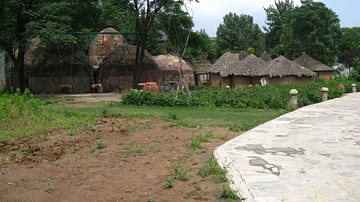
Definition
Banpo Village
Banpo Village is a Neolithic site in the Yellow River Valley, east of Xi'an, Shaanxi Province, in the People's Republic of China. The site was occupied from c. 4500-3750 BCE and covers almost 20 acres. Over 10,000 stone tools and artifacts...
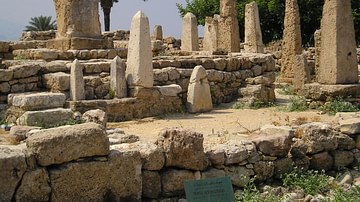
Definition
Byblos
Byblos was the ancient Phoenician port city of Gebal (called Byblos by the Greeks) on the coast of the Mediterranean sea in what is, today, Lebanon. According to the historian Durant, “Byblos thought itself the oldest of all cities; the god...
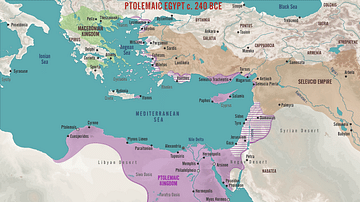
Definition
Ptolemaic Egypt
Ptolemaic Egypt existed between 323 and 30 BCE when Egypt was ruled by the Macedonian Ptolemaic dynasty. During the Ptolemaic period, Egyptian society changed as Greek immigrants introduced a new language, religious pantheon, and way of life...
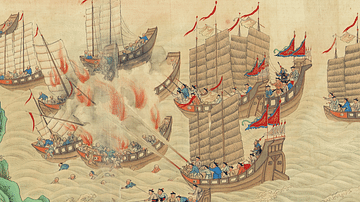
Definition
Zheng Yi
Zheng Yi (also Cheng I, Ching Yih, Cheng Yao-I, Cheng Wen-Hsien, or Cheng Yud) was a Chinese pirate who lived from 1765 to 1807. Operating in the South China Sea, Zheng Yi famously led a 600-ship pirate confederation. This force of more than...
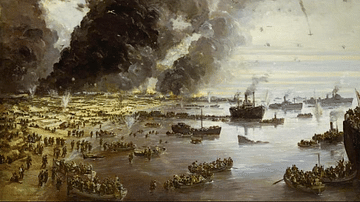
Definition
Dunkirk Evacuation
The Dunkirk Evacuation of 26 May to 4 June 1940, known as Operation Dynamo, was the attempt to save the British Expeditionary Force in France from total defeat by an advancing German army. Nearly 1,000 naval and civilian craft of all kinds...